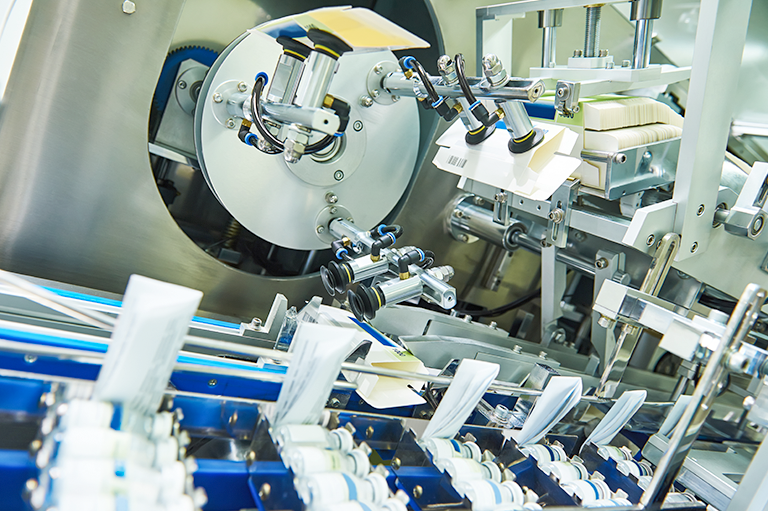
Importance of Humidity Control Pharmaceutical & Healthcare Facilities
Humidity control is a critical factor in maintaining the integrity, safety, and efficiency in pharmaceutical products, along with ensuring the well-being of patients in healthcare facilities. In environments where precision and hygiene are paramount, managing moisture levels isn't just about comfort—it's about safeguarding the very essence of health and safety.

20 DEHUMIDIFIERS + FREEBIES!
The Influence of Humidity on Pharmaceutical Production
Save ($5,880)
$16,799 $10,919
In pharmaceutical production, controlling humidity is essential to maintaining the stability and potency of medications. High humidity levels can lead to the degradation of active pharmaceutical ingredients (APIs), affecting their efficacy and shelf life. Excess moisture can cause powders to clump, tablets to swell, and capsules to become sticky, leading to inconsistencies in dosage and compromised product quality.
Moreover, certain manufacturing processes, such as the coating of tablets or the drying of granules, require specific humidity levels to achieve optimal results. Variations in moisture can lead to defects in the final product, which can result in costly recalls, regulatory issues, and potential harm to patients.
By keeping humidity within strict parameters, pharmaceutical manufacturers can ensure that every product meets the highest standards of quality and safety.
Collapsible content
Maintaining Quality Assurance Through Humidity Control
In healthcare facilities, controlling humidity is vital for preserving the integrity of medical supplies and creating a safe environment for both patients and staff. Surgical instruments, sterile dressings, and diagnostic equipment are all susceptible to the damaging effects of excess moisture. High humidity levels can lead to the growth of mold, mildew, and bacteria, which pose serious risks of contamination in environments where sterility is essential.
Furthermore, patient comfort and recovery are directly impacted by indoor humidity levels. Excess moisture can exacerbate respiratory conditions, trigger allergies, and create an overall uncomfortable atmosphere. For immunocompromised patients or those recovering from surgery, maintaining an optimal humidity level is crucial to preventing complications and promoting faster healing.
The Role of Commercial Dehumidifiers in Quality Assurance
Commercial dehumidifiers play a pivotal role in maintaining the strict humidity levels required in both pharmaceutical and healthcare settings. These advanced systems are designed to provide precise moisture control, ensuring that environmental conditions remain within the optimal range.
Protecting Product Integrity
In pharmaceutical facilities, dehumidifiers help maintain the stability and efficacy of products by preventing moisture-related degradation. This is especially important in storage areas where large quantities of medications are kept for extended periods.
Enhancing Sterility and Cleanliness
In healthcare environments, dehumidifiers reduce the risk of mold and bacterial growth, helping to maintain sterile conditions and ensuring the safety of patients and staff.
Improving Air Quality
Dehumidifiers contribute to better air quality by reducing allergens, dust mites, and other airborne contaminants that thrive in humid environments. This is essential for patient care areas, laboratories, and clean rooms where air purity is crucial.
Energy Efficiency and Cost Savings
Modern commercial dehumidifiers are designed to operate efficiently, reducing energy consumption while maintaining precise humidity control. This not only ensures compliance with industry standards but also leads to cost savings in the long run by minimizing product loss and reducing maintenance needs.
Compliance with Regulatory Standards
Pharmaceutical and healthcare facilities are subject to strict regulatory requirements regarding environmental control. By utilizing commercial dehumidifiers, facilities can ensure compliance with these standards, avoiding costly fines, product recalls, and potential legal issues.
Buying Guide
To select the perfect Argendon dehumidifier for your needs, consider the following:
1. Assess Your Space: Evaluate the size of the area you need to dehumidify and its current humidity levels.
2. Choose the Right Capacity: Select a dehumidifier with the capacity suited to your space requirements for effective moisture control.
3. Energy Efficiency: Opt for models that offer energy-efficient performance to save on long-term operational costs.
4. User-Friendly Controls: Look for models with easy-to-use controls for straightforward operation.
5. Maintenance: Regular upkeep is essential to extend the lifespan of your dehumidifier and ensure its continued efficiency.
